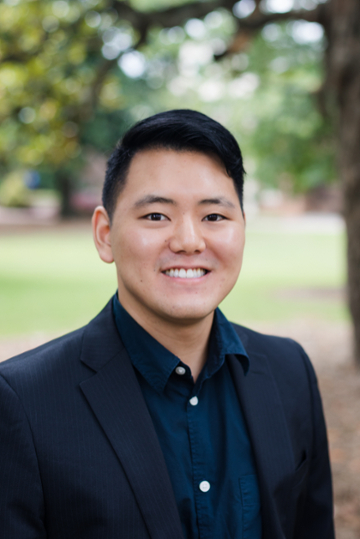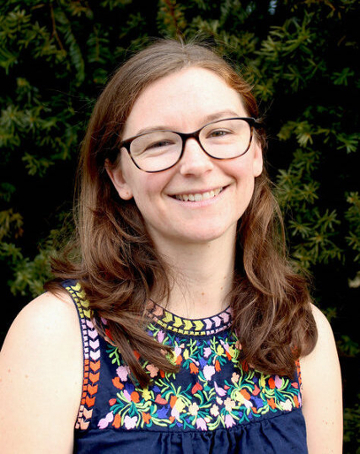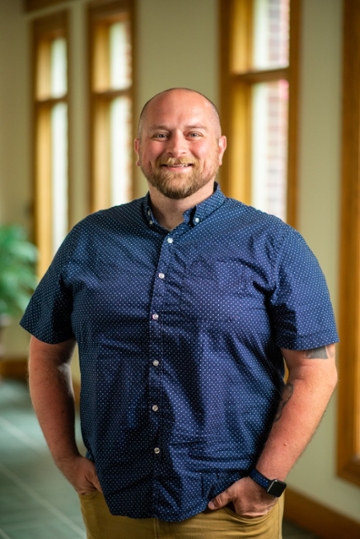Joy and Humility in Scholarship: Southeastern’s Advanced Students Present Papers at ETS
Chad Burchett | November 15, 2022

Several of Southeastern’s current advanced degree students are presenting papers at this year’s annual meeting of the Evangelical Theological Society (ETS) in Denver, CO, on November 15-17. As an institution committed to rigorous scholarship and a robust Great Commission vision, Southeastern celebrates the academic contributions of its advanced degree students who are participating in the 2022 ETS meeting.
Southeastern is a Great Commission seminary, and this Great Commission framework motivates the spirit, scholarship, and camaraderie that characterize Southeastern’s advanced degree programs. Because Southeastern trains students to go, to serve the Church, and to fulfill the Great Commission, Southeastern challenges its students to give the Church, the academy, and the nations their best research and to do so with joy and humility.
“Southeastern does advanced degrees in a distinctively Southeastern way,” noted Christy Thornton, Assistant Professor of Christian Thought, Director of the ThM program, and Associate Director of the PhD program at Southeastern. “At Southeastern, we believe that you can be an excellent scholar and still be humble, offering serious academic contributions to your discipline without taking yourself too seriously.”
“We also put opportunities in front of our students to use their degrees internationally and partner with the Church around the world,” noted Thornton, who is also a 2021 graduate of Southeastern’s PhD program. “We even provide opportunities for them to teach at seminaries internationally. We do this because we believe that scholarship is an act of service, not self-fulfillment. We try to cultivate that attitude in our students, which is usually not too challenging because our advanced programs already attract these types of students.”
We believe that scholarship is an act of service, not self-fulfillment.
Southeastern’s missional joy and humility creates an inviting space for vibrant scholarly community — a community that empowers students to learn and research in open conversation with peers and professors. One of the ways Southeastern encourages its advanced degree students to refine their research in community is by prompting them to share their projects publicly at academic society meetings like ETS.
“ETS is a special time of the year for us as an institution and as a community of scholars,” shared Thornton. “We get to hear what our students and faculty have been working on and see them in their element. Much of scholarship is completed alone in a study, so it is really gratifying for our scholars to put their work out in public for the first time and for us to be able to see the good work they have been doing while in the program.”
Three of Southeastern’s advanced degree students at ETS took the time to share about the research they are presenting this week at ETS. In the following Q&As, hear how they desire to serve the Church with their research and how their time at Southeastern formed them as scholars:

Chris Lee — PhD in Philosophy of Religion
ETS paper title: “From Mozart to Mind, From Chopin to Consciousness: An Argument Against the Computational Theory of Mind from Music”
How does your research contribute to your discipline?
I offer arguments against the prominent physicalist theory of mind — namely, the computational theory of mind (CTM) — from music. According to CTM, also known as “machine” or “computational” functionalism, the mind operates, quite literally, like a computer. This position emphasizes the analogy between the functioning of the human brain and the mind and the functioning of a digital computer and computer software. I argue, however, CTM is unable to properly account for the human phenomenology of music, and I contend that the creation and existence of non-physical minds through a Divine Mind can better account for the full range of musical qualia and our rich, conscious phenomenology of music.
What motivated you to write on this topic?
I was motivated by my interest in the perplexity of the mind and my personal experience of the phenomenology of music. My hope is for people to better understand the complex and remarkable nature of our minds (conscious lives), and this will lead us to praise the one who fashioned our minds.
How does your research and education at Southeastern equip you to serve the Church and fulfill the Great Commission?
Southeastern seamlessly combines academic rigor and spiritual fervor. The faculty at Southeastern are virtuous exemplars, both intellectually and in character, and they have taught me to think critically and Christianly, stirred my heart to love the truth and the Lord, and have equipped me to serve and teach in the academy and in the Church — both locally and globally.
Why should someone consider advanced studies at Southeastern?
Southeastern will thoroughly equip you to form a rich and deep Christian intellectual life — Christ-centered, truth-seeking, and Great Commission-focused.

Rachel Gilson — PhD in Public Theology
ETS paper title: “The Impossibility of Christian Same-Sex Marriage: Ephesians 5:22-33 and the Metaphor of Marriage”
How does your research contribute to your discipline?
I cast a positive vision for why Christian marriage is male and female and not any other arrangement of gender. I am concerned that the Church’s default response to same-sex marriages is mostly to look at the ways in which the Bible says “no.” It is a needed reminder that God is saying “yes” to something and not just “no” to something.
What motivated you to write on this topic?
As a same-sex-attracted disciple of Christ, the questions were first personal and then ministerial as I became a campus worker for Cru. I realized we need better — more biblical — answers not only for same-sex-attracted people who are trying to be faithful but also for straight people who need to be reminded of God’s design concerning marriage.
How does your research and your education at Southeastern equip you to serve the Church and fulfill the Great Commission?
I came to Southeastern because I wanted to be at a confessional school and to do projects that serve the Church. I also wanted a place where I could ask challenging questions, and you cannot do that at every institution. I also serve as a missionary with CRU. So, as I seek to help the Church respond to LGBTQ questions, I see these questions not only as discipleship questions but also as evangelism questions. I want to help the Church positively explain what the Bible teaches on sexuality and on marriage. If we cannot positively explain what is going on biblically, we cannot engage properly in our mission.
Why should someone consider advanced studies at Southeastern?
It is a great place to be. As a student, I know I have a lot of support — with good relationships among my peers and faculty. Southeastern also encourages women by offering them substantial funding. It is a lot of fun being a student in the Southeastern community. Southeastern is what I want the SBC to be.

Jason Arrowood — PhD in Theology and Worship
ETS paper title: “Kicking It Old School: How Singing a New Song Is an Old Idea ”
How does your research contribute to your discipline?
I show that the idea of singing new songs in worship is actually a biblical command. New songs are not a modern invention, and there are — biblically speaking — some distinct parameters for doing so.
What motivated you to write on this topic?
I am a worship pastor, and I want to help lead the people God has placed under my leadership in a biblically accurate way. I hope that people will see the implications of the commonalities found in each instance of the phrase “sing a new song” found in Scripture. The implications for modern churches are very important.
How does your research and your education at Southeastern equip you to serve the Church and fulfill the Great Commission?
As a student at Southeastern, I am being equipped to serve the Church and fulfill the Great Commission as I study the implications of maintaining a sound lyrical theology in an ever-changing modern worship environment.
Why should someone consider advanced studies at Southeastern?
Southeastern is a great place to pursue an advanced degree because they hold firm to the fact that every classroom is a Great Commission classroom and because there is a very high academic standard as well. Southeastern also equips me to understand the importance of theological education for everyday practical ministry.
To learn more about Southeastern’s advanced degree programs or to apply, visit Southeastern’s advanced degree page.